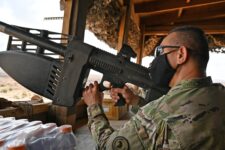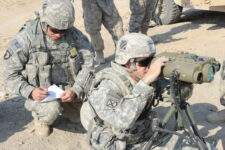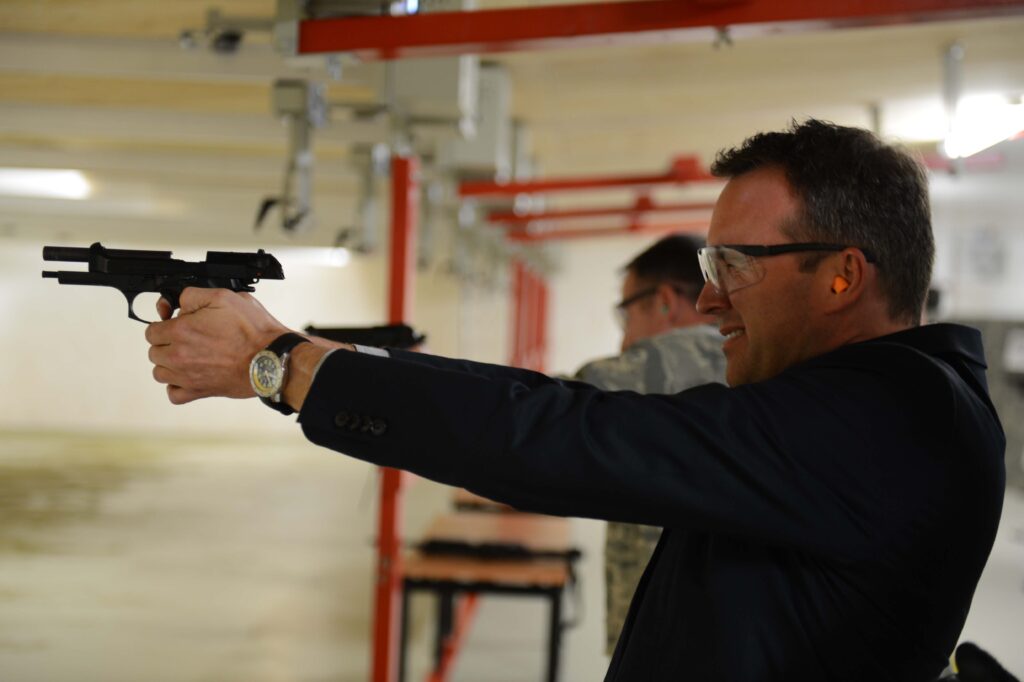
Eric Fanning
UPDATED: Adds CSA Milley & Gen. Sullivan remarks
WASHINGTON: The administration’s nominee for Army Secretary wants better defenses against cyber attack, a warmer relationship with the National Guard, and a fast-track for acquisition inspired by the Air Force’s Rapid Capabilities Office.
Despite having held senior positions in both the Air Force and the Navy, Eric Fanning’s path to the Army Secretary’s office has been unusually bumpy: A week and a half ago, the Senate Armed Services Committee essentially forced him to stop serving as Acting Secretary — which SASC said violated the law — in order to be confirmed. [UPDATE: SASC chairman Sen. John McCain said at the start of this morning’s confirmation hearing that Fanning’s resignation as Acting Secretary had “cured” the violation of the law].

Eric Fanning relaxes with supporters after his Senate confirmation hearing
So Fanning has every cause to be cautious — even more cautious than a normal nominee’s written responses to the committee’s pre-hearing questions. And sure, there’s no shortage of non-committal answers like “I will continue to assess….,” “I will work closely with….,” and “I will review….” (fill in the blank with any topic). However, the 64-page document — obtained by Breaking Defense ahead of the hearing — does have a few nuggets where Fanning clearly states a priority that’s not already established Army policy.
“One area of focus must be the defense against cyber and electronic warfare threats,” Fanning wrote, in an unusually specific statement. In particular, he said, “the Army’s current level of investment puts us on track to achieve a modernized network by 2023; however, I believe we should increase investment now in order to achieve a modernized and secure network by 2019.”
This may seem mild, but for a nominee to propose changing a program of record at all is a major break from the usual noncommittal non-specifics. Proposing a four-year acceleration affecting the Army’s entire IT system is practically radical.
Cybersecurity isn’t the only reason Fanning cites to move ahead on network modernization. There’s also increased capacity, efficiency, and economy. But security’s clearly the primary driver, to the point it even seeps into the economic argument: “accelerated investment would reduce the risk of unplanned costs associated with remediation of cyber attacks.” In other words, you have to compare the cost of security upgrades with the cost of security breaches you’d avoid.
Fanning also emphasized the importance of alternatives to GPS — which can be jammed — for Position, Navigation, & Timing (PNT) data. PNT that works at all times, even in the face of sophisticated enemy interference, is “critical to the Army” and “fundamental to our forces’ ability to maintain initiative, coordinate movements, target fires and communicate on the move.”
[UPDATE: To expedite all these priorities, Fanning told the committee this morning he wants to create an Army equivalent of the Air Force’s Rapid Capabilities Office — which handles not just small projects but the Long-Range Strike Bomber mega-program. Having seen what the original RCO can do in his time as Acting Secretary of the Air Force, Fanning said, replicating it in the Army will be one of his top three priorities, alongside improving readiness and improving relationships with the Guard.]
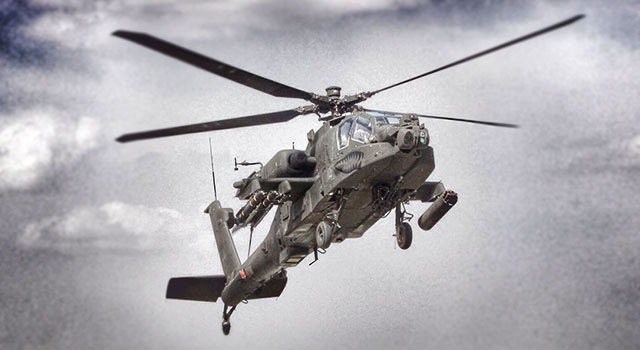
AH-64E Apache
National Guard
The only other capability Fanning described with such enthusiasm was the “invaluable” AH-64 Apache helicopter. Apaches just happen to be at the heart of the Army leadership’s long quarrel with the National Guard community. The service’s Aviation Restructure Initiative would transfer all Guard AH-64s into regular active duty units to replace unserviceably old OH-58 Kiowas in the reconnaissance role. (The AH-64s would perform the recon mission in tandem with Grey Eagle drones, another initiative Fanning praised). While Congress has not outright halted the transfer, it did charter a commission to study active/Guard tensions and the Army in general.
“If confirmed, I will ensure that the recommendations of the National Commission on the Future of the Army are thoroughly and objectively assessed,” writes Fanning — emphasis ours: note he doesn’t say “implemented.” He continues, “we will aggressively implement all recommendations that can make our Army better and increase readiness, consistent with statute, policy, and available resources.”
So what recommendations might Fanning not implement? Calling off the Apache transfer is probably one. “My initial review of this important issue is that Aviation Restructuring Initiative (ARI) is analytically sound,” he writes. “All other proposals were deemed by the Cost Assessment and Program Evaluation Directorate and Program Evaluation office and the U.S. Government Accountability Office (GAO) to be less effective than ARI. If confirmed, I will, however, keep an open mind when reviewing the recommendations of the Army Commission.”
What’s more, Fanning noted, he lived through a similar commission process involving the Air National Guard. “I will bring with me many of the lessons learned from similar experience in the Air Force, which includes pushing the team to be open to new ideas, fostering a collaborative relationship with all external stakeholders and maintaining transparency,” he writes.
[UPDATE: Fanning made a particular point of his experience with the National Guard while working for both the Air Force and the Army. “I spent a lot of time with General [Frank] Grass [director of the National Guard Bureau] in both jobs,” he told the committee. “Whenever i travel to a state, I ask if the TAG [the adjutant general, the top ranking Guard officer in a state] is available to meet.”]
We’ll see if Fanning’s past experience helps him navigate the aftermath of the Army Commission, whose final report comes out the 28th. For now, the question is whether he can navigate the Senate.
[UPDATE: The head of the Association of the US Army, retired Gen. Gordon Sullivan, made a point this morning of endorsing Fanning’s confirmation: “We would like that to happen sooner rather than later — like today,” Sullivan said at an AUSA breakfast.
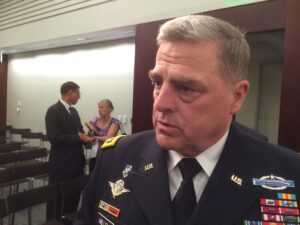
Gen. Mark Milley
“Eric Fanning’s a first-class, quality act,” the Army Chief of Staff himself, Gen. Mark, Milley, said earlier at the breakfast. Fanning is “professional,.”articulate,” “intelligent,” “very calm [and] analytical,” and “very effective on the Hill [and] inside the building” [i.e. the Pentagon],” the Chief of Staff said.
Having known Fanning for about six months, Milley said, “he’s a pleasure to work with.”]
Army eyes TBI monitoring, wearable tech for soldiers in high-risk billets
“We are also looking at what additional personal protective equipment we can provide to our folks, especially instructors and others who are routinely exposed to blast pressure,” said Army Secretary Christine Wormuth.












